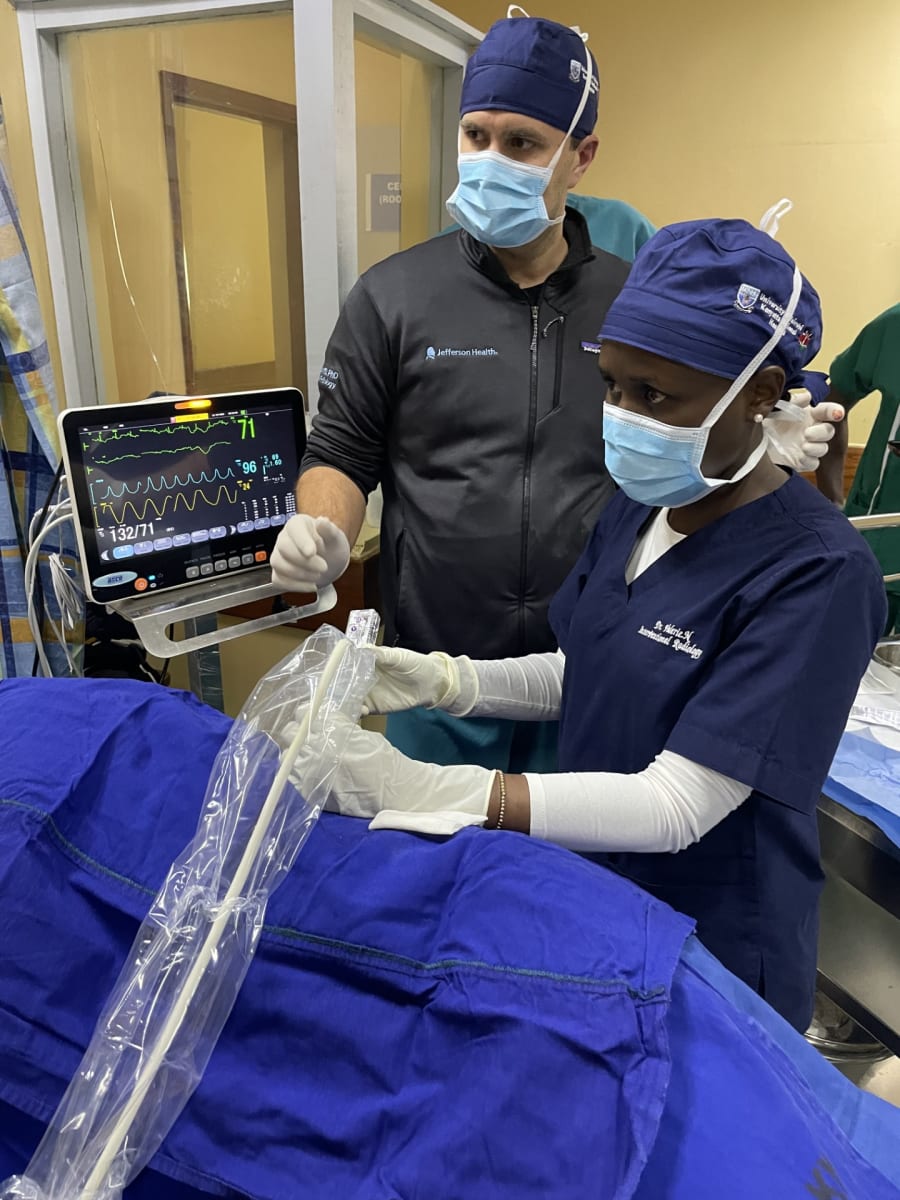The primary objective of this initiative is to improve medical imaging and radiology accessibility in Kenya, with a specific focus on interventional radiology, aiming to bolster radiology's contribution to global public health endeavors and patient care. My role involves assisting Dr. Kevin Anton, the Associate Director of RAD-AID, in providing education and performing procedures at the University of Nairobi and Aga Khan Hospital for their newly established Interventional Radiology Fellowship. Leveraging the expertise and knowledge acquired from Thomas Jefferson Hospital, along with additional materials, our plan is to contribute to the training of the IR fellows in Kenya. This training will include lectures and in-person consultations during real-world cases, ultimately helping the graduating fellows acquire the essential skills and knowledge needed to become independent and proficient Interventional Radiologists. By achieving this, they can offer the population of Kenya and those in need of IR expertise in the country, a minimally invasive, image-guided specialty. Prior to arriving in Kenya, Dr. Anton and I will attend the South African Interventional Society and Society of African Interventional Radiology and Endovascular therapy Congress in Cape Town which is focused on expanding access to IR across Africa.
The goal of this project is to benefit the entire population of Kenya. As the field of Interventional Radiology continues to develop in Kenya, the population will gain access to minimally invasive, image-guided procedures, which can complement or serve as alternatives to current medical care in the country. Given the nascent stage of interventional radiology in Kenya, many people currently lack access to this level of care. However, as training and the number of providers increase, a growing number of individuals will have access to these transformative procedures.
Our contribution to this project involves providing learning opportunities and in-person case support to the current attendings and fellows at the University of Nairobi Hospital. Additionally, we will supply IR tools to diversify procedural treatments based on each patient's clinical requirements. The expected impact is to bolster the confidence and competence of the current Kenyan trainees in performing IR procedures. Upon our return, the aspiration is for IR physicians in Kenya to begin training the next generation, thereby creating a sustainable cycle of knowledge and expertise. As Interventional Radiology matures in Kenya, they will encounter unique disease processes different from those seen in the USA, fostering inter-country collaboration to facilitate future medical advancements.











